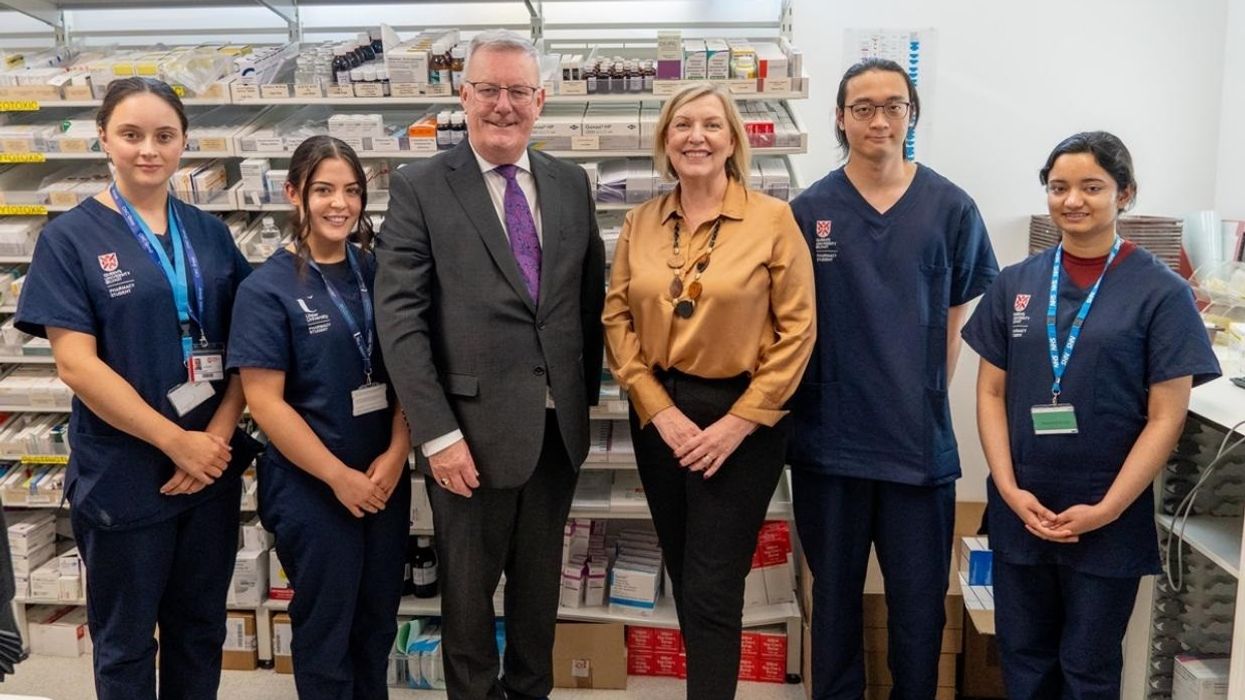Mike Nesbitt believes that optimising pharmacists' skills can help strengthen the HSC workforce and alleviate pressures in healthcare
Northern Ireland’s Health Minister, Mike Nesbitt, has welcomed the launch of the 2024/25 Experiential Learning (EL) Programme, designed to equip future pharmacists with the skills needed for a greater role in clinical care.
Starting in 2026, pharmacy undergraduate students will qualify as independent prescribers upon registration, and this programme is designed to prepare them for that responsibility.
The EL Programme provides pharmacy students with multi-sector clinical work placements across the region.
Speaking at the programme's launch at Ulster Hospital, Minister Nesbitt said: “This is the second year of this successful programme, which will see pharmacy students in Northern Ireland benefit from the training by completing up to twelve weeks of practice-based learning in hospitals, community pharmacies and general practices across NI.
“This will provide them with actual practice-based experiences in a range of healthcare settings, facilitating them to interact with patients and engage in interprofessional practice.
He emphasised the importance of optimising the skills of pharmacist independent prescribers, noting that this could enhance the capability and capacity of the Health and Social Care (HSC) workforce, helping to ease pressures in areas such as primary, secondary and emergency care.
“Widening access to care can also assist in tackling health inequalities,” the minister said, expressing his enthusiasm to seeing the potential benefits for graduates, the HSC and patients.
Chief pharmaceutical officer Professor Cathy Harrison described EL as “an essential component within the initial education and training of pharmacy professionals.”
“Utilising pharmacists’ skills as patient-facing clinical specialists in medicines can help ensure that patients get safe, effective, and right medicines,” she said.
She commended the programme's growth and acknowledged the contributions of the “experienced and committed” network of hospital Trust Clinical Education and Practice Supervisor pharmacists, along with over 270 community pharmacists and 115 general practice pharmacists, who are providing EL practice supervisor training, supporting student learning in primary care.
Professor Harrison extended her best wishes to all pharmacy students who are completing their EL placements this year, as well as to the Northern Ireland Centre for Pharmacy Learning and Development (NICPLD), universities, hospitals, community pharmacies, general practices, and all stakeholders for their “continued hard work and collaboration in helping to make the programme a continued success.”
The NICPLD, based at Queen’s University Belfast (QUB), has been commissioned by the Department of Health to design, manage, and deliver the EL Programme. It works with QUB, Ulster University (UU), Community Pharmacy NI (CPNI), GP Federations, hospitals, and local employers to coordinate student placements.
The EL Programme was developed to align with new mandatory initial education and training (IET) reforms and standards for pharmacists in Northern Ireland, jointly developed by the General Pharmaceutical Council (GPhC) and the Pharmaceutical Society of Northern Ireland (PSNI).
To meet the new standards, periods of EL or practice-based learning are now integrated into the MPharm degree, allowing students to complete up to 12 weeks of placements in both primary and secondary care throughout the course.













